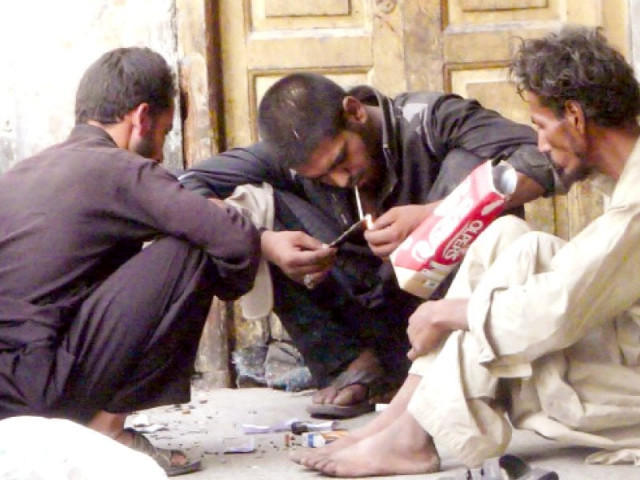Laws focus on drug mules instead of kingpins: report
FFR finds death penalty provides little deterrence

Islamabad chamber says willing to work with ANF to make city drug-free. PHOTO: INP
This was stated by the ‘Optimising Pakistan’s Drug Laws: Making the Control of Narcotic Substances Act (1997) Stronger, Fairer and More Effective’ report which was launched by the Foundation for Fundamental Rights on Wednesday.
The report has studied cases the people incarcerated under the Control of Narcotic Substance Act (CNSA) 1997.
The report reveals that of the 133 drug cases booked under the law in the capital, researchers found no case where the convict was responsible for organising, managing or even financing large-scale drug-related activity. Moreover, only 29 per cent of the defendants could identify cartel “kingpins”, but only a fraction of the cases saw an actual senior drug trafficker get arrested and charged.
“Under the statute, Pakistan’s drug enforcement system is geared towards seizing individual consignments of illicit drugs and handing down the harshest possible punishments for the carriers or ‘mules’ transporting them,” the report said, adding that this actually distracts attention and resources away from actually investigating and disrupting organised drug trafficking networks.
Little deterrence
The FFR report noted that the CNSA 1997 prescribes the death penalty for 18 separate criminal acts.
However, in practice, the penalty is only handed down for either the possession or transportation of narcotics.
Around half of all the death sentences were for comparatively less harmful cannabis products, while only 23 per cent of the sentences were given for heroin seizures.
Moreover, an analysis of prisoners who were facing capital charges under the CNSA suggests that many of these people were mere ‘drug mules’, or couriers who were either coerced, tricked or driven by deplorable socioeconomic circumstances into drug trafficking and often have no interest in the drug trade or stakes in running cartels.
Their median reported income was found to be around Rs10,000 a month, lower than the minimum wage. Curiously, the average value of narcotics seized from them would be roughly 1,600 times that amount. To make matters worse, these lowest common denominators were the easiest to catch for the authorities and the easiest to replace for the cartels.
Moreover, 41 per cent of the prisoners surveyed were illiterate.
The study recommended that the CNSA required urgent reform.
Published in The Express Tribune, January 18th, 2018.



















COMMENTS
Comments are moderated and generally will be posted if they are on-topic and not abusive.
For more information, please see our Comments FAQ